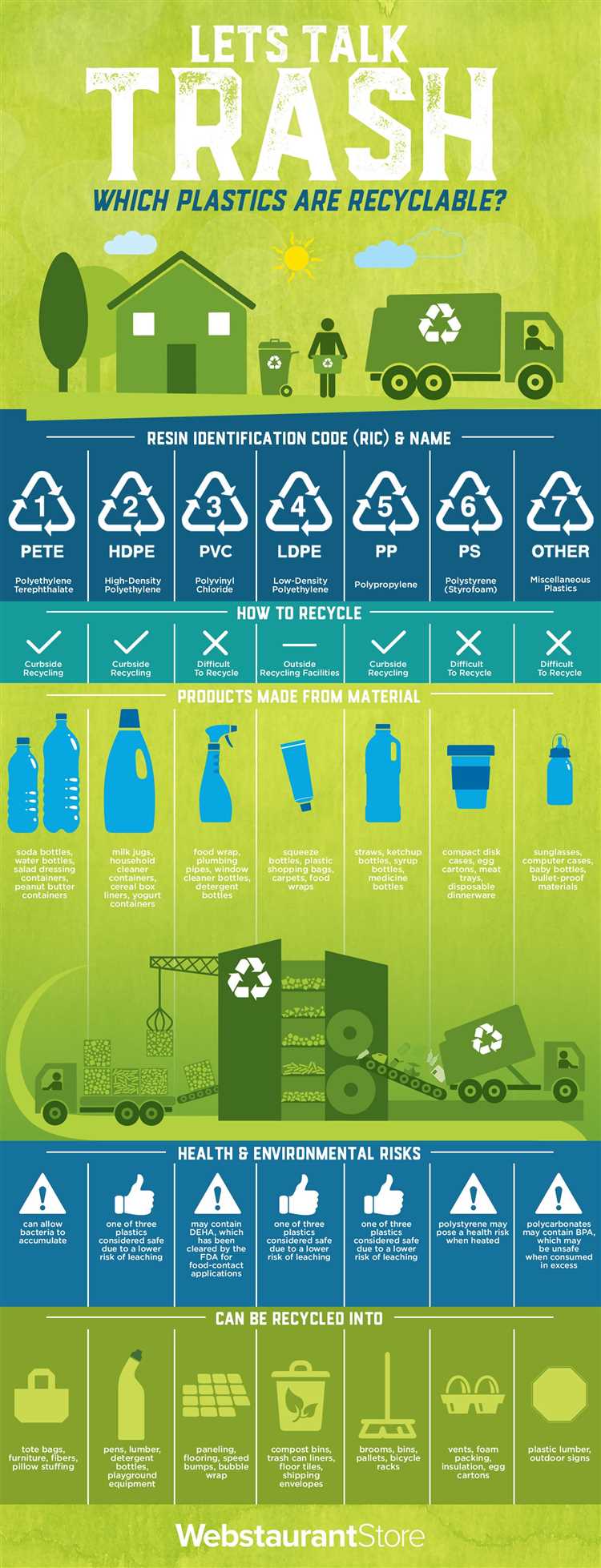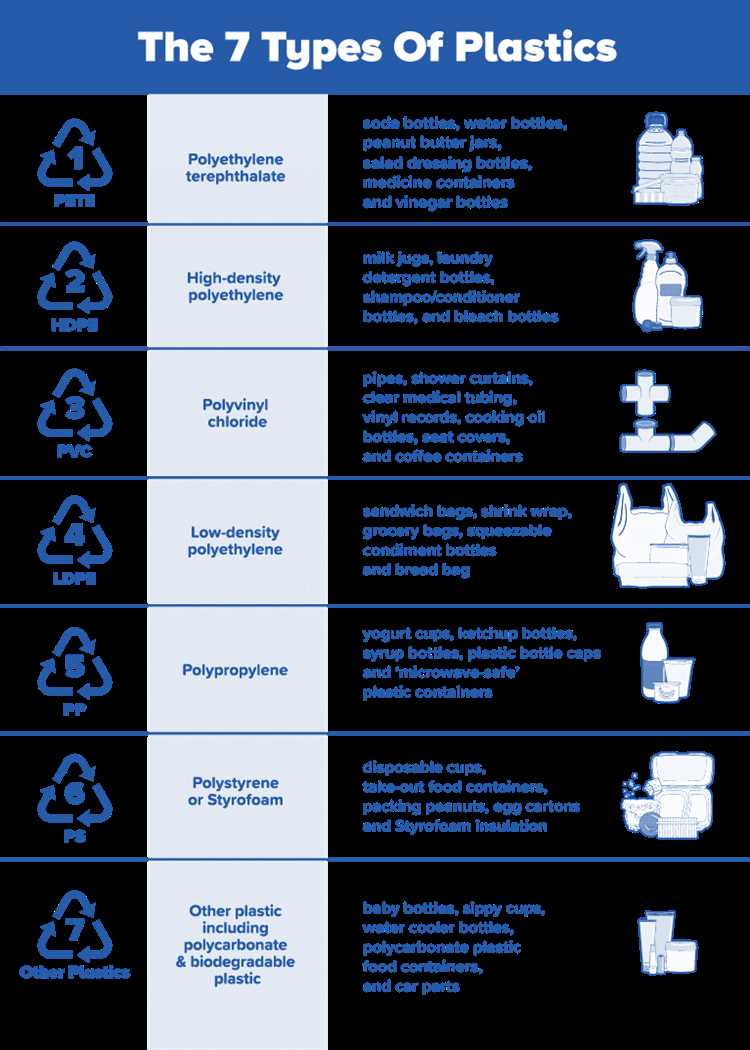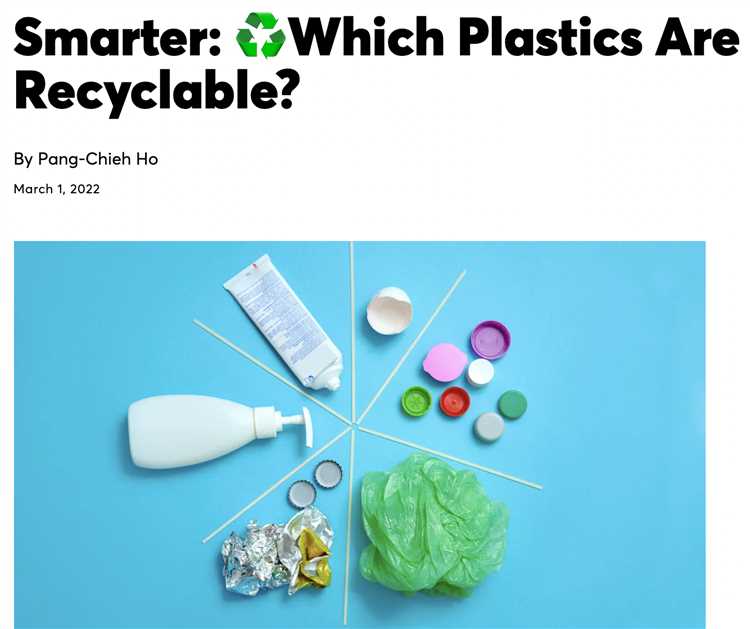Plastic waste is a growing concern worldwide, with millions of tons being produced and discarded each year. While many plastics claim to be recyclable, not all of them actually end up being recycled. In this complete guide, we will explore the different types of recyclable plastics and how to properly recycle them, in order to contribute to a more sustainable future.
Understanding the different types of plastic: It’s important to note that not all plastics are created equal. There are seven different types of plastic, each with its own recycling properties. These include PET, HDPE, PVC, LDPE, PP, PS, and other types of plastics. Understanding the differences between these types is crucial when it comes to recycling them.
Recycling PET plastic: PET, or Polyethylene Terephthalate, is a commonly used plastic in packaging for beverages, food, and other consumer products. It is highly recyclable and can be used to make a variety of products, such as polyester fibers for clothing, carpets, and even construction materials. When recycling PET plastic, it’s important to remove any caps or labels and rinse the containers thoroughly.
Recycling HDPE plastic: HDPE, or High-Density Polyethylene, is a plastic commonly used in milk jugs, detergent bottles, and various household items. It is also highly recyclable and can be used to make new containers, bags, and even plastic lumber. When recycling HDPE plastic, make sure to remove any contaminants and rinse the containers thoroughly to prevent contamination.
Recycling PVC plastic: PVC, or Polyvinyl Chloride, is a type of plastic commonly used in pipes, vinyl flooring, and other construction materials. It can be recycled, but the process is more complex due to the presence of additives and contaminants. It’s important to consult with local recycling facilities to determine the best way to recycle PVC plastic in your area.
By understanding the different types of plastic and how to properly recycle them, we can all play a part in reducing plastic waste and creating a more sustainable future. Together, let’s discover the real recyclable plastics and make a difference.
- The Importance of Recycling Plastics
- 1. Reducing Landfill Waste
- 2. Conserving Energy and Natural Resources
- 3. Preventing Air and Water Pollution
- 4. Creating Jobs and Economic Opportunities
- 5. Promoting a Circular Economy
- Why Plastic Recycling Matters
- Types of Recyclable Plastics
- Different Types of Plastics for Recycling
- PET (Polyethylene Terephthalate)
- HDPE (High-Density Polyethylene)
- Q&A:
- What are recyclable plastics?
- How are plastics recycled?
- What are the benefits of recycling plastics?
- Are all types of plastics recyclable?
- How can I know if a plastic item is recyclable?
The Importance of Recycling Plastics
Plastic pollution has become a major environmental concern in recent years. With the increasing production and consumption of plastics, proper plastic waste management has become crucial. Recycling plastics plays a vital role in combating this issue and has a number of important benefits for both the environment and society as a whole.
1. Reducing Landfill Waste

When plastics are not properly recycled, they often end up in landfills, where they can take hundreds of years to decompose. By recycling plastics, we can significantly reduce the amount of plastic waste that goes into landfills, helping to free up valuable land resources and minimize the environmental impact of these waste sites.
2. Conserving Energy and Natural Resources
Producing new plastic materials requires significant amounts of energy and resources. However, by recycling plastics, we can save energy and reduce the need for extracting and processing raw materials. Recycling one ton of plastic can save up to 5,774 kWh of energy, which is equivalent to the energy consumption of an average household for six months.
3. Preventing Air and Water Pollution

Improperly disposed of plastics can contribute to air and water pollution. When plastics are burned or dumped into bodies of water, they release toxic chemicals that can harm the environment and pose a threat to human health. By recycling plastics, we can prevent the release of these pollutants and help keep our air and water clean.
4. Creating Jobs and Economic Opportunities
The recycling industry can create numerous job opportunities and contribute to economic growth. Recycling plants require skilled workers for sorting, processing, and converting discarded plastics into new products. By supporting recycling initiatives, we can help create a sustainable economy and improve employment prospects.
5. Promoting a Circular Economy
Recycling plastics is a key component of a circular economy, which aims to minimize waste and make the most of resources. By recycling plastics, we can transform waste into valuable raw materials for manufacturing new products, reducing the need for virgin materials and promoting a more sustainable approach to production and consumption.
Overall, the importance of recycling plastics cannot be overstated. It is a critical step in addressing plastic pollution, conserving resources, reducing waste, and preserving the environment for future generations.
Why Plastic Recycling Matters
Plastic recycling is crucial for the health of our planet and future generations. Here are a few reasons why plastic recycling matters:
1. Environmental Benefits: Plastic recycling helps reduce the amount of plastic waste that ends up in landfills and oceans. By recycling plastic, we can conserve natural resources and minimize pollution caused by plastic production and disposal.
2. Energy Conservation: Recycling plastic requires less energy compared to producing new plastic from raw materials. This helps reduce carbon emissions and the use of fossil fuels, thus contributing to the fight against climate change.
3. Economic Opportunities: The recycling industry creates job opportunities and contributes to economic growth. It provides employment for individuals involved in collecting, sorting, and processing plastic waste, as well as for manufacturers who produce recycled plastic products.
4. Plastic Pollution Reduction: Plastic pollution is a global issue that affects wildlife, ecosystems, and human health. Recycling plastic helps prevent plastic waste from contaminating the environment and harming marine life. It also helps reduce the demand for virgin plastic production.
In conclusion, plastic recycling is not only an environmental responsibility but also a necessity for creating a sustainable future. It offers numerous benefits, from reducing pollution and conserving energy to creating economic opportunities and combating plastic pollution. By recycling plastic, we can make a positive contribution towards a cleaner and healthier planet.
Types of Recyclable Plastics
Recyclable plastics play a crucial role in reducing waste and promoting sustainability. Understanding the different types of recyclable plastics can help individuals make informed choices when it comes to disposing of and recycling plastic items.
1. Polyethylene Terephthalate (PET or PETE): PET is commonly used in the production of beverage bottles and food packaging. It is one of the most widely recycled plastics, and the recycled PET can be used in various products including new bottles, polyester fabric, and carpet.
2. High-Density Polyethylene (HDPE): HDPE is known for its strong and durable properties, making it ideal for products such as plastic bottles, containers, and pipes. It is widely accepted for recycling and can be used in the production of new HDPE containers, plastic lumber, and drainage pipes.
3. Polyvinyl Chloride (PVC): PVC is commonly used in construction materials, such as pipes and window frames. While PVC can be recycled, it requires a separate recycling process due to its chemical composition. Recycling PVC can result in products such as flooring, traffic cones, and garden hoses.
4. Low-Density Polyethylene (LDPE): LDPE is commonly used in plastic bags, shrink film, and food packaging. It is relatively easy to recycle and can be turned into new plastic bags, garbage can liners, and irrigation pipes.
5. Polypropylene (PP): PP is used in a variety of products, including food containers, automotive parts, and packaging materials. It is widely accepted for recycling and can be used to create new PP products such as bins, pallets, and storage containers.
6. Polystyrene (PS): PS is widely used in disposable foam products, such as takeaway containers and packaging materials. It can be challenging to recycle due to its lightweight nature, but it is possible to recycle PS into products like picture frames, coat hangers, and insulation.
It’s essential to note that not all plastic items are recyclable, even if they bear the recycling symbol. It is important to check with local recycling programs or facilities to determine which types of plastics are accepted for recycling in your area.
Remember, recycling plastic is a vital step in reducing plastic waste and protecting the environment. By understanding the different types of recyclable plastics, we can make conscious decisions to support a more sustainable future.
Different Types of Plastics for Recycling
Plastics are widely used in our daily lives, from packaging materials to household items and even in the construction industry. Proper recycling of plastics is essential to reduce the amount of plastic waste in our landfills and oceans. However, not all plastics can be recycled in the same way. In fact, there are several different types of plastics, each with its own recycling properties.
PET (Polyethylene Terephthalate)

One of the most common types of plastics for recycling is PET. This plastic is commonly used for bottles and containers for food and beverages. PET is highly recyclable and can be melted down to create new bottles and other plastic products. Many recycling programs accept PET plastic, so be sure to separate it from other types of plastics for proper recycling.
HDPE (High-Density Polyethylene)
HDPE is another commonly recycled plastic. It is often used for milk jugs, detergent bottles, and plastic bags. HDPE is known for its durability and resistance to chemicals, making it suitable for many different applications. When recycled, HDPE can be used to create new plastic products such as toys, pipes, and even furniture.
It is important to note that not all plastics can be recycled. Some plastics, such as PVC (Polyvinyl Chloride) and Polystyrene, are difficult to recycle due to their chemical composition. These plastics may be accepted for recycling in some areas but are not as commonly recycled as PET and HDPE.
In conclusion, understanding the different types of plastics and their recycling properties is crucial for proper waste management. By separating and recycling plastics correctly, we can help reduce the environmental impact of plastic waste and promote a more sustainable future.
Q&A:
What are recyclable plastics?
Recyclable plastics are types of plastics that can be processed and transformed into new products instead of being discarded in landfills or incinerated. These plastics can be melted down and reformed multiple times without losing their quality.
How are plastics recycled?
Plastics are recycled through a process called mechanical recycling. This involves sorting the different types of plastics, cleaning them, and then shredding them into small pieces. The shredded plastics are then melted and formed into pellets or flakes, which can be used to make new products.
What are the benefits of recycling plastics?
There are several benefits of recycling plastics. Firstly, it helps to conserve natural resources by reducing the need for new plastic production. It also reduces the amount of plastic waste in landfills and can help to decrease pollution. Additionally, recycling plastics can save energy compared to producing new plastics from raw materials.
Are all types of plastics recyclable?
No, not all types of plastics are recyclable. Plastics are categorized by their resin codes, or recycling numbers, which indicate the type of plastic they are made from. While some plastics, like PET and HDPE, are widely recyclable, others, like PVC and PS, are less commonly recycled.
How can I know if a plastic item is recyclable?
You can usually determine if a plastic item is recyclable by looking at its resin code or recycling number. This number is often located on the bottom of the item inside a recycling symbol. You can also check with your local recycling facility or municipality to see which types of plastics they accept for recycling.